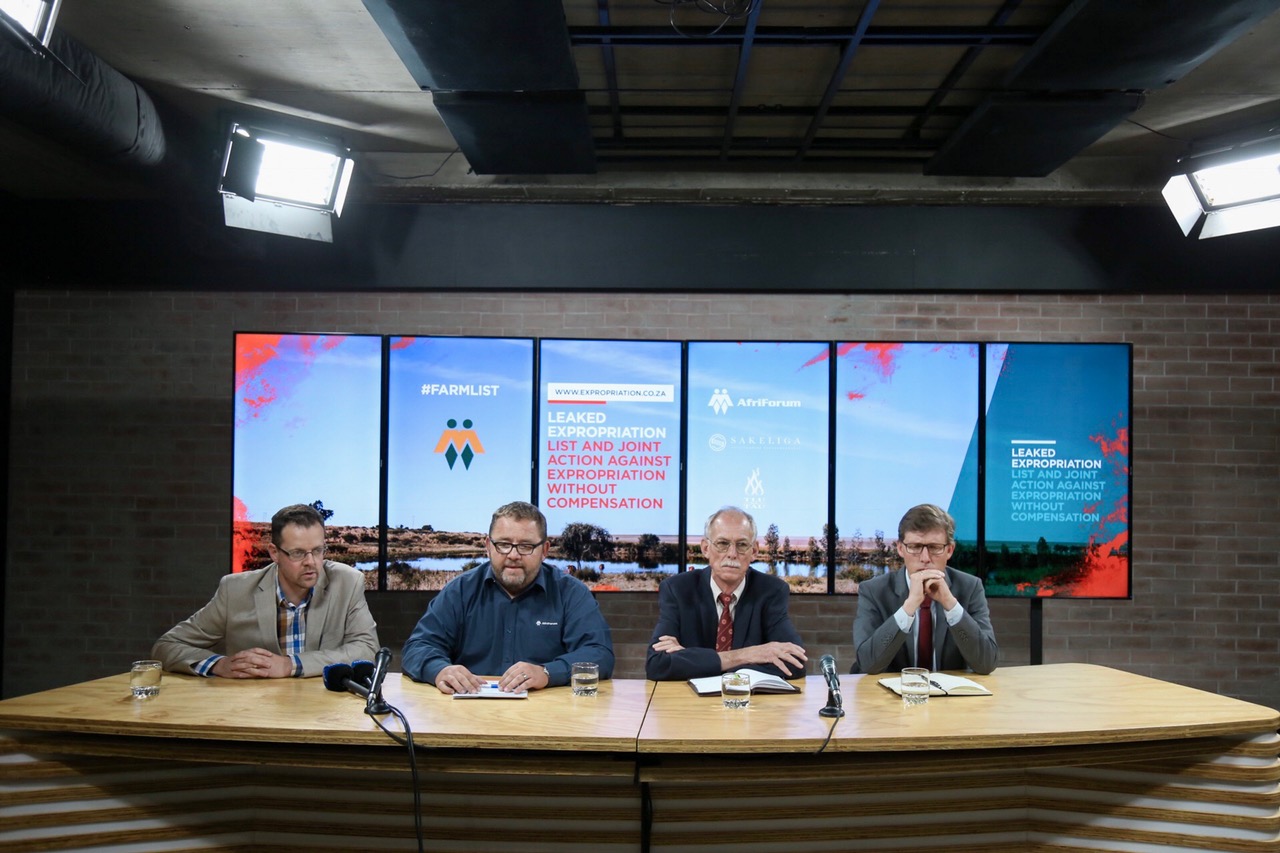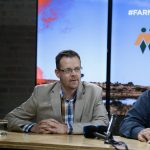Disclosed expropriation list: AfriForum, TAU SA and Sakeliga to develop joint litigation strategy to protect property rights
AfriForum, the agricultural union TAU SA and the business organisation Sakeliga decided to combine their efforts and develop a joint litigation strategy to oppose government’s intended plans to expropriate property without compensation.
The decision follows an internal discussion document of the Department of Rural Development and Land Reform (DRDLR) that was provided to AfriForum by a reputable source. The document contains a list of properties which are earmarked for expropriation. The document’s disclosure was preceded by confirmation from Zizi Kodwa, Head of the Presidency, as well as other members of the ANC’s National Executive Committee (NEC) that the DRDLR had an expropriation list of 139 properties. Maite Nkoana-Mashabane, Minister of Rural Development and Land Reform, also indicated that her department had already identified land for expropriation, but that she would not make the list public, as it would then serve as a warning to affected owners and provide them with the opportunity to prepare for legal action. The disclosure of the list also follows President Cyril Ramaphosa’s announcement that he and the ANC wanted to change the Constitution to make expropriation without compensation possible.
As a result of confirmations by ANC NEC members as well as the Minister, all three organisations agree that an expropriation list indeed exists. The Institute of Race Relations’ finding that the list was credible, as well as the fact that most of the properties on the list adhere to the Department’s description of which categories of property would be targeted, are reason enough to view the expropriation list with gravity and not to dismiss it.
AfriForum, TAU SA and Sakeliga encouraged their respective members and other people whose properties are on the list to contact the organisations and provide information to enable the three organisations to jointly decide on a strategy to support people who are affected negatively. All three organisations indicate that they have already been inundated by members and other people whose properties are included on the expropriation list.
According to Kallie Kriel, CEO of AfriForum, the threat of expropriation without compensation is of such a serious nature that we cannot afford division among the supporters of property rights. “Together we are stronger,” Kriel says. Kriel also indicates that other supporters of the protection of property rights are welcome to join the organisations’ cooperation actions. According to Kriel, AfriForum has already had talks with leaders who are part of AgriSA’s provincial affiliates, and these leaders support AfriForum’s disclosure of the expropriation list.
Louis Meintjes, President of TAU SA, says that property rights and compensation at market value are key to a sustainable economy and economic growth. “These two principles may never be set aside. This case is bigger that any person or institution. Standing together is the only workable success for land owners in South Africa,” Meintjes adds.
Piet le Roux, CEO of Sakeliga, points out that the ANC is starting to show worrisome similarities with Zimbabwe’s Zanu-PF: “Whether or not the disclosed list is the final list is not the crux of the matter. It is a fact that the ANC do have a list of farms that the party wants to expropriate in test cases under the current Constitution. This means that the ANC, just like ZANU-PF in Zimbabwe then, will try to clothe the seizure of farms (a fundamentally unconstitutional deed) with procedural legitimacy. As business, agricultural and civil rights organisations, it is our duty to prevent the Zimbabwe scenario by working together along a broad front – in everyone’s interest.”
Share on
Latest articles
























